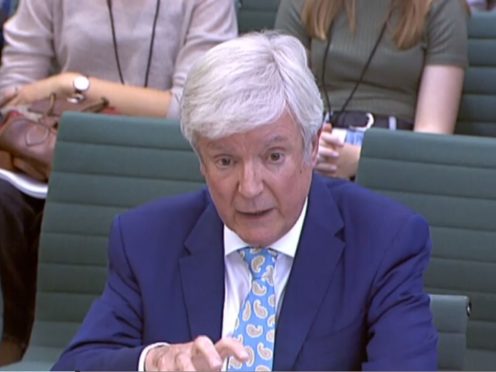The director general of the BBC has said he initially described the Government’s decision to hand the corporation responsibility for free TV licences for over-75s as “nuclear”.
From June next year, the benefit will be restricted to over-75s who claim pension credit, with the BBC saying it cannot afford to take on the financial burden from the Government.
Lord Hall told MPs on the House of Commons Digital, Culture, Media and Sport Committee on Wednesday that the BBC took on the policy “unwillingly” and had “no choice” but to end the concession.
Giving evidence, he said he first heard about the decision during a call with then-Culture Secretary John Whittingdale.
Tune in this afternoon from 2.30pm 👇 https://t.co/8yPNdVdWg0
— Digital, Culture, Media and Sport Committee (@CommonsCMS) July 17, 2019
Mr Whittingdale told him he had “lost the argument over the weekend” and that the BBC would have to take over responsibility for the fee.
Lord Hall said he had replied “Well, that’s nuclear”, before laying out “the consequences of that decision”.
The free TV licence was introduced in 2000, but the BBC agreed to take on the cost as part of the charter agreement hammered out in 2015.

Lord Hall also said he “refutes and resents” the idea the corporation is not honouring its agreement with the Government over free TV licences for the over-75s.
He said the corporation has been “completely consistent about the reforms we would need to make to live with the budget means we were set”.
He stressed that from the beginning, it has been the Government which is “withdrawing the concession”.
Discussing the value of the concessions the BBC was given as part of the charter agreement, including an increase to the licence fee, committee chairman Damian Collins MP suggested they were worth “about £700 million”, adding “it seems you’re net gainers from this process”.
Lord Hall added that it had been “made absolutely clear” he had “no option” but to accept the deal.
“This was coming to us whether we wanted it or not,” he said.
“This was a new Conservative Government with a majority, coming in fresh with the success of that election – this was coming our way, come what may.”
He added that the BBC “absolutely did not” sell over-75s “down the river”.
The three-hour session also saw Lord Hall defend the salary of sports presenter Gary Lineker, who is still the corporation’s top earner with an annual salary of between £1,750,000 and £1,754,999.
The Match Of The Day host’s pay packet has remained unchanged since last year, unlike some BBC stars who have had pay cuts.
The figure was revealed in the BBC’s annual report and drew criticism as it came soon after the BBC announced the end of the concession.
Lord Hall said: “You know as I do that sports presentation is a very different part of the market, people are paid a lot of money, much, much more than by BT, by Sky and so on, but that of course is different to public service. Gary does a great job for the BBC.”
Dame Helen Mirren, Sir Lenny Henry, actress Amanda Redman and Gogglebox star June Bernicoff are among 20 celebrities who have signed an open letter urging the next prime minister to restore free TV licences for all over-75s.
